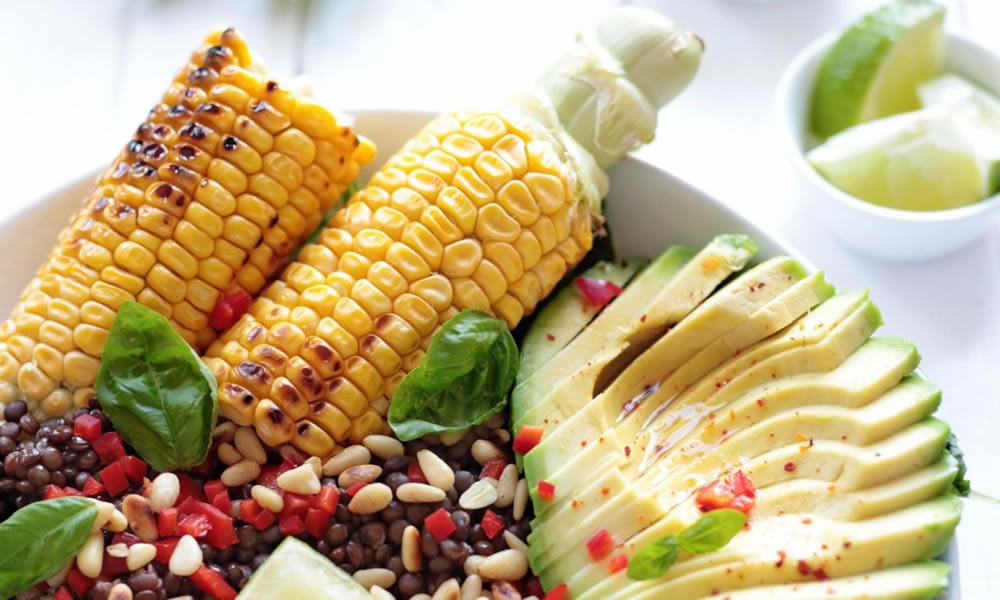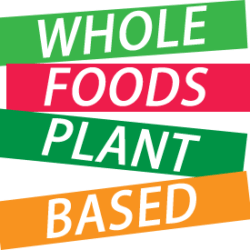 Here are a few verses from the Bible that clearly state that meat and vegetable are sanctioned by the Lord for consumption.
Here are a few verses from the Bible that clearly state that meat and vegetable are sanctioned by the Lord for consumption.
Then God said, “I give you every seed-bearing plant on the face of the whole earth and every tree that has fruit with seed in it. They will be yours for food.” Genesis 1:29
And to every beast of the earth, and to every bird of the air, and to everything that creeps on the earth, everything that has the breath of life, I have given every green plant for food. Genesis 1:30
Of all the creatures living in the water, you may eat any that has fins and scales. But anything that does not have fins and scales you may not eat; for you it is unclean. Deuteronomy 14:9 – 10
Every moving thing that liveth shall be meat for you; even as the green herb have I given you all things. Genesis 9:3
I am not sure God makes a determination to not eat or to eat meat (except with blood in it). However, God and the Bible are clear on gluttony as a sin!
Proverbs 23:20-21 warns us, “Do not join those who drink too much wine or gorge themselves on meat, for drunkards and gluttons become poor, and drowsiness clothes them in rags.”
Proverbs 28:7 says, “He who keeps the law is a discerning son, but a companion of gluttons disgraces his father.”
Proverbs 23:2 wow…, “Put a knife to your throat if you are given to gluttony.”
The ability to say “no” to anything in excess—self-control—is one of the fruits of the Spirit common to all believers. Galatians 5:22
The previous passages are my beacon through the confusion being perpetrated by the food industry and others. It is the truth I chose to believe. The answer has been sitting and waiting for me to find it: “Eat as close to what was provided by our Father to eat, and the cravings and food addictions will dissipate.”
There are various levels of processed foods and all are not “bad” for you and can actually help you on your journey to this life style: pre-chopped vegetables or fruits, minimally processed canned foods, and prepared salads are just a few examples. What I mean by “bad” foods are processed for convenience and shelf life and have large amounts of hidden sodium, fats, and sugar, which are always bad news.
Many advocates for better health, believe that processed food is addictive due to the immense amount of sugar, fat, and salt packed into each serving. Although standard in home cooking, these ingredients often come highly processed in processed and fast food in the form of high fructose corn syrup and hydrogenated and partially hydrogenated oils.
Energy-dense food intake may increase the risk of developing type 2 diabetes. In contrast, the high fiber content in nutrient-dense foods provide a feeling “full” and satisfied after eating and may decrease blood cholesterol and sugar levels.
Most empty-calorie foods are highly processed foods that contain added fat and sugar. Examples include baked products such as cakes, cookies, pies, and pastries as well as puddings, doughnuts, fries, jams, syrups, jelly, sweetened fruit drinks, breaded fried burgers and ice cream. Empty-calorie foods also make up most of the long shelf life foods and beverages sold in vending machines such as chips, salted snacks, candy, soda, energy and sports drinks. Although empty-calorie foods are cheaper and more readily available than nutrient-dense foods, habitual consumption of these foods can have a negative effect on health.
Eating a healthy, balanced diet of nutrient-dense foods provides many nutrients that are required to maintain health. This means planning meals that include fruits, vegetables, whole grains, nuts, beans, seeds, poultry, and fish. These foods provide fewer calories but are excellent sources of nutrients such as the B-vitamins, vitamins A, C, D and E, protein, calcium, iron, potassium, zinc, fiber and monounsaturated fatty acids. Fruits and vegetables also contain phytochemicals that may help reduce the incidence of heart disease, diabetes, and cancer.
A plate of colorful vegetables and fruits, whole-grain foods instead of foods made with refined carbohydrates and broiled or roasted, lean meats will provide foods that are nutrient-dense. Another way of reducing intake of empty calories is controlling portion sizes of meats (3 ounces) or even substituting with low-fat, high fiber, and nutrient dense fruit or vegetable. Making the right dietary choices will help improve your health and quality of life. – SFGATE

